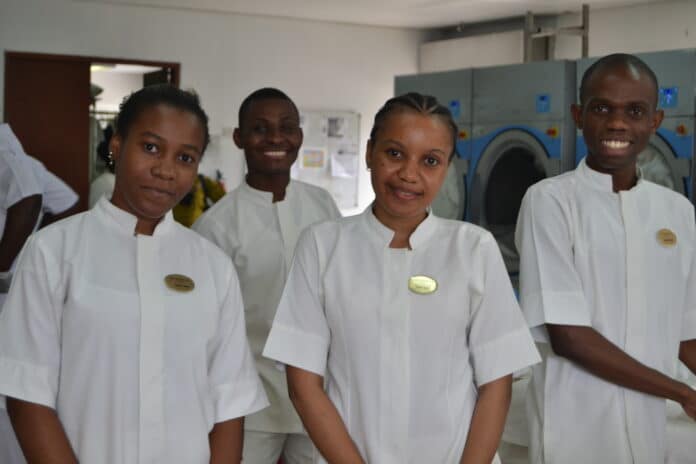Skills development has an important role to play in the immediate effort to lessen the impact of COVID-19 .
Not only when the pandemic is active but also in building the resilience of workers and firms, and in preparing for recovery.
Agreement facilitates an ILO programme
The newly signed agreement will contribute to rolling out the ILO Global Programme on Skills and Lifelong Learning (GPSL3 ). The GPSL3 aims to provide coordinated and enhanced support to ILO constituents. It will contribute to develop and implement new generation skills and lifelong learning ecosystems. It recognizes that education, training, and lifelong learning are fundamental for a decent future of work. The GPSL3 supports and assists ILO Constituents in 34 target countries in the ILO’s five regions of operations with a focus on:
- fostering innovation;
- facilitating the digital transition;
- managing knowledge and communication, and
- empowering constituents to take a lead role in providing technical guidance.
Furthermore, the regional component of the Programme will focus on addressing forced labour and modern slavery. In addition, it includes the promotion of skills partnerships on migration with an emphasis on migrant workers. At country level, the programme’s interventions will focus on responding to the aspirations, gaps, challenges, objectives, and the impact of the COVID-19 pandemic identified by national stakeholders.
The agreement is a new phase of a long-standing partnership between the ILO and the Government of Norway. It has focused on skills development since 2016, with the signature of the Programme Cooperation Agreement (PCA) 2016-17 and PCA 2018-20.






